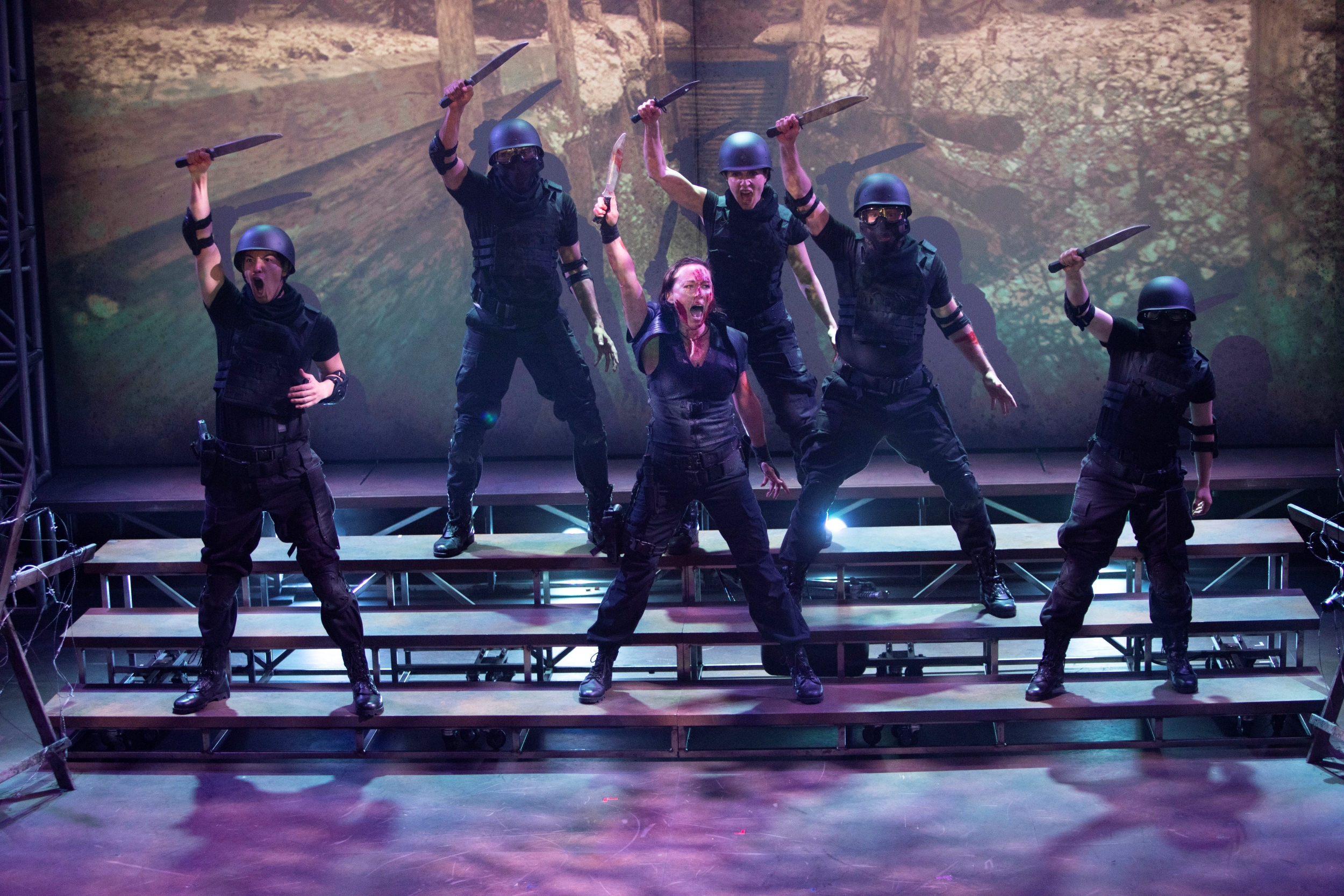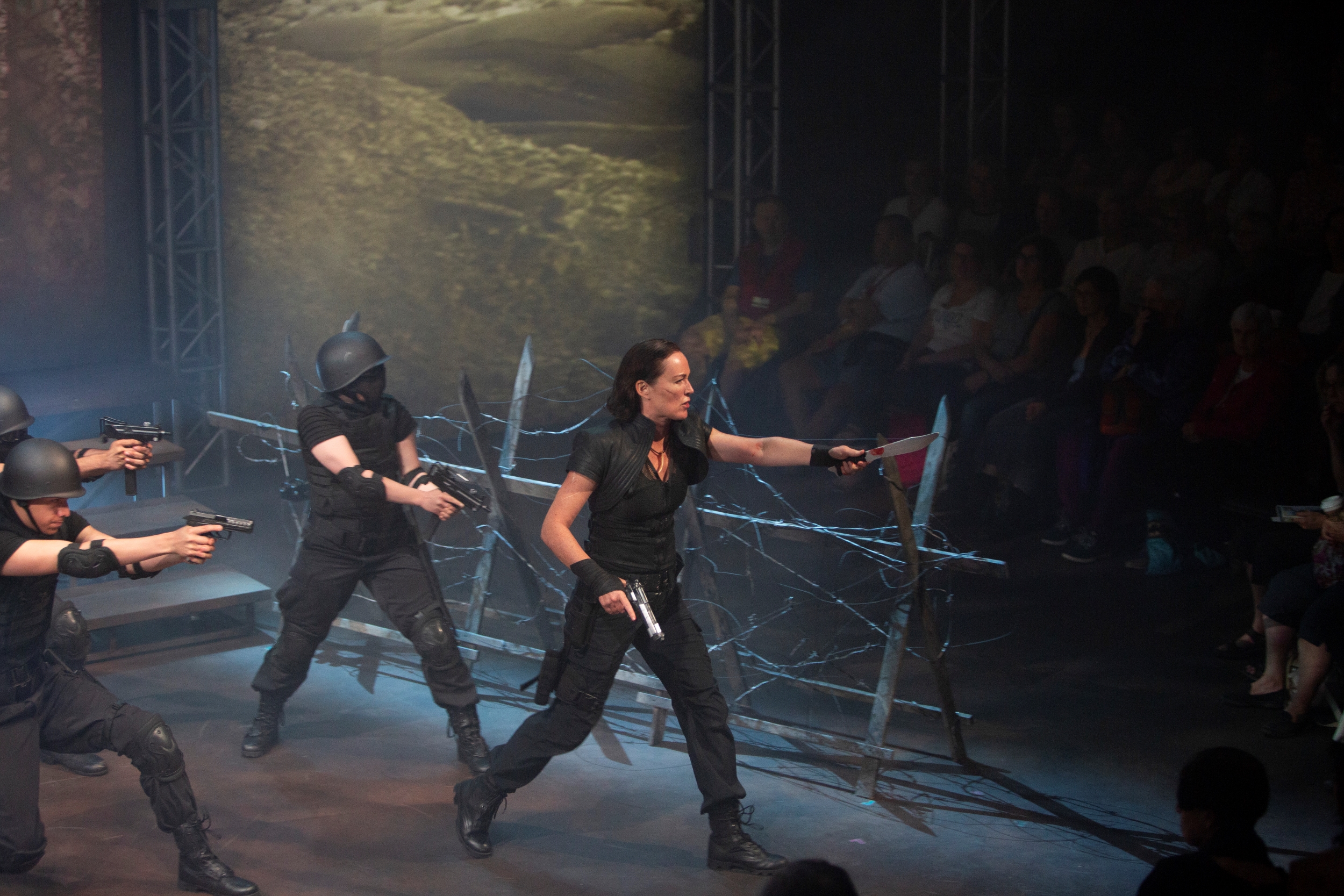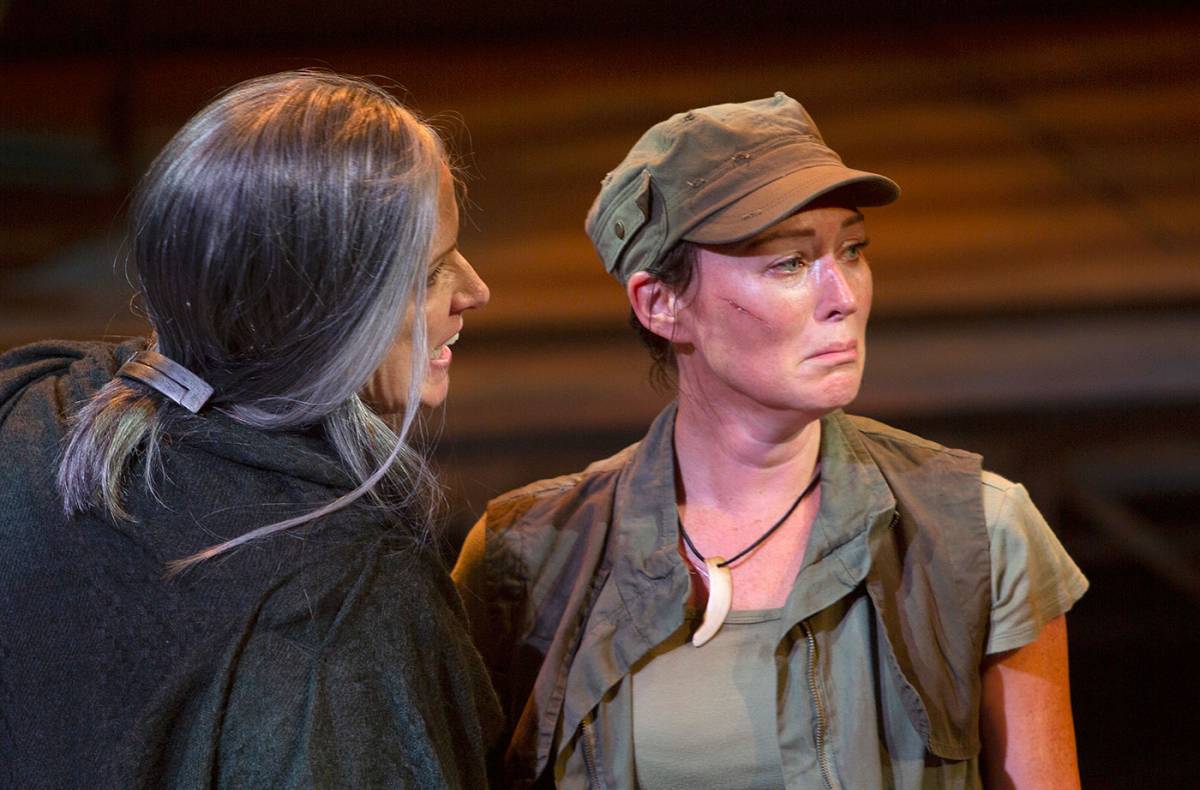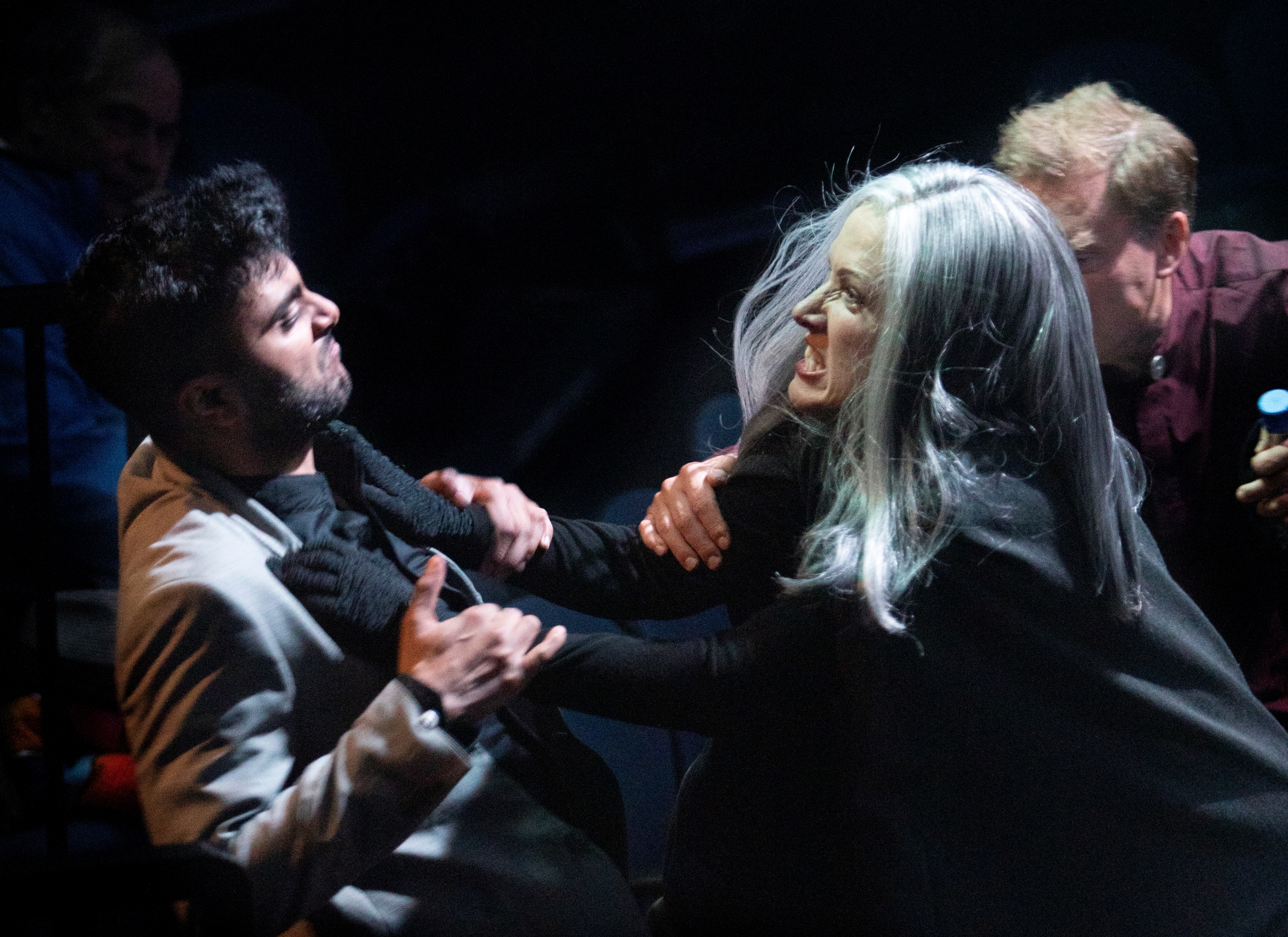There has been no shortage of Coriolanus stagings this century. Ralph Fiennes directed himself eight years ago, Tom Hiddleston starred in London back in 2013 (as recently as last year, Cineplex was still replaying it), and Jonathan Cake just opened another version in New York. For a late, long Shakespeare, such attention is enough to suggest the play can’t be considered as minor as it once was—there’s something irresistible now about its plot of a militaristic celebrity becoming a politician, then getting torn apart for being ungrateful.
In Bard on the Beach’s new rendering, Coriolanus isn’t an entitled man—she’s played by Moya O’Connell, in the manner of ’80s action stars (her look is inspired by The Terminator’s Linda Hamilton, and her costume has Mad Max written all over it). The set, with its large projection wall, is a busy one, but the overall effect is of a YA post-apocalyptic setting (as in The Maze Runner sequels) where rural poverty and steel skyscrapers coexist, and battle calls for both rocket launchers and leather scabbards.
This is hardly an unprecedented confusion of choices for Shakespeare, and the text still gives enough support for standout acting. O’Connell moves capably from war choreography (embarrassingly bullet-timed) to untempered scorn to desperate betrayal, never lapsing into the marathon yelling and declamation the script can lend itself to. In Act III’s last-ditch public relations-advising scene, she even brings out the screwball back and forth of the invocation to deliver a public address “mildly.”
I could go on; among the main cast, there isn’t a lacking performance. But the context isn’t there: by situating this world on the edge of collapse, director Dean Paul Gibson plays things clichéd and safe. In a sense, this cruel work about complicity can seem archaic, at least in our moment: the people raise a fuss, and a would-be tyrant is expedited immediately. If anything, though parts of it are written in blood, this narrative has more in common with another branch of celebrity: Coriolanus says the contemptuous thing and pays for it, more in reputation at first than anything else—you could say she’s fired and recast. Bard’s version obscures any true relevance the play might have by making this a scenario for warrior women and blockbuster simplicity. In both its casting decisions and aesthetic choices it’s several years too late in the making.
Read more reviews of the Arts.














